site search
online catalog
AN ENGLISH REGULATION PATTERN 1853 CAVALRY SABER

Hover to zoom


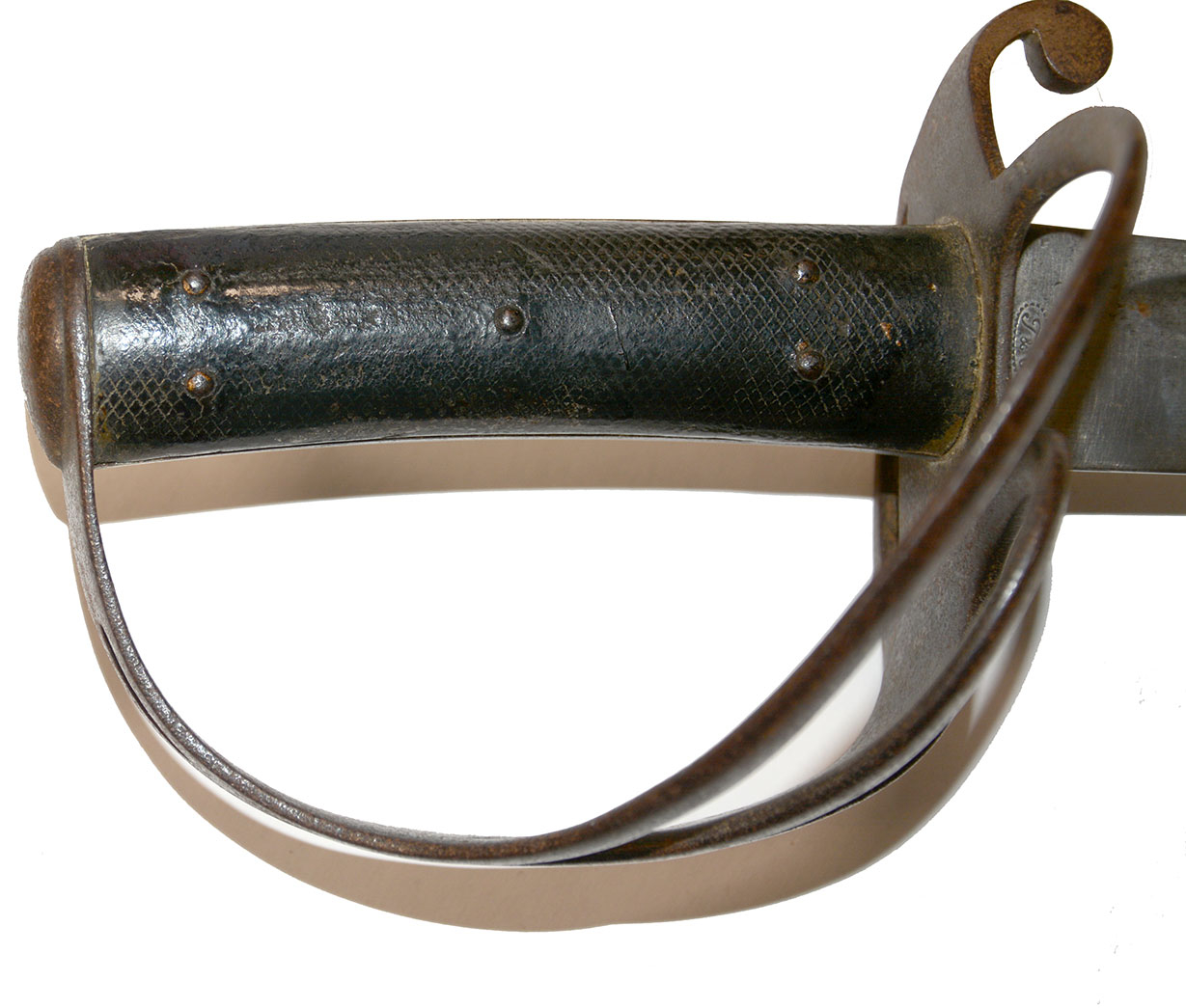
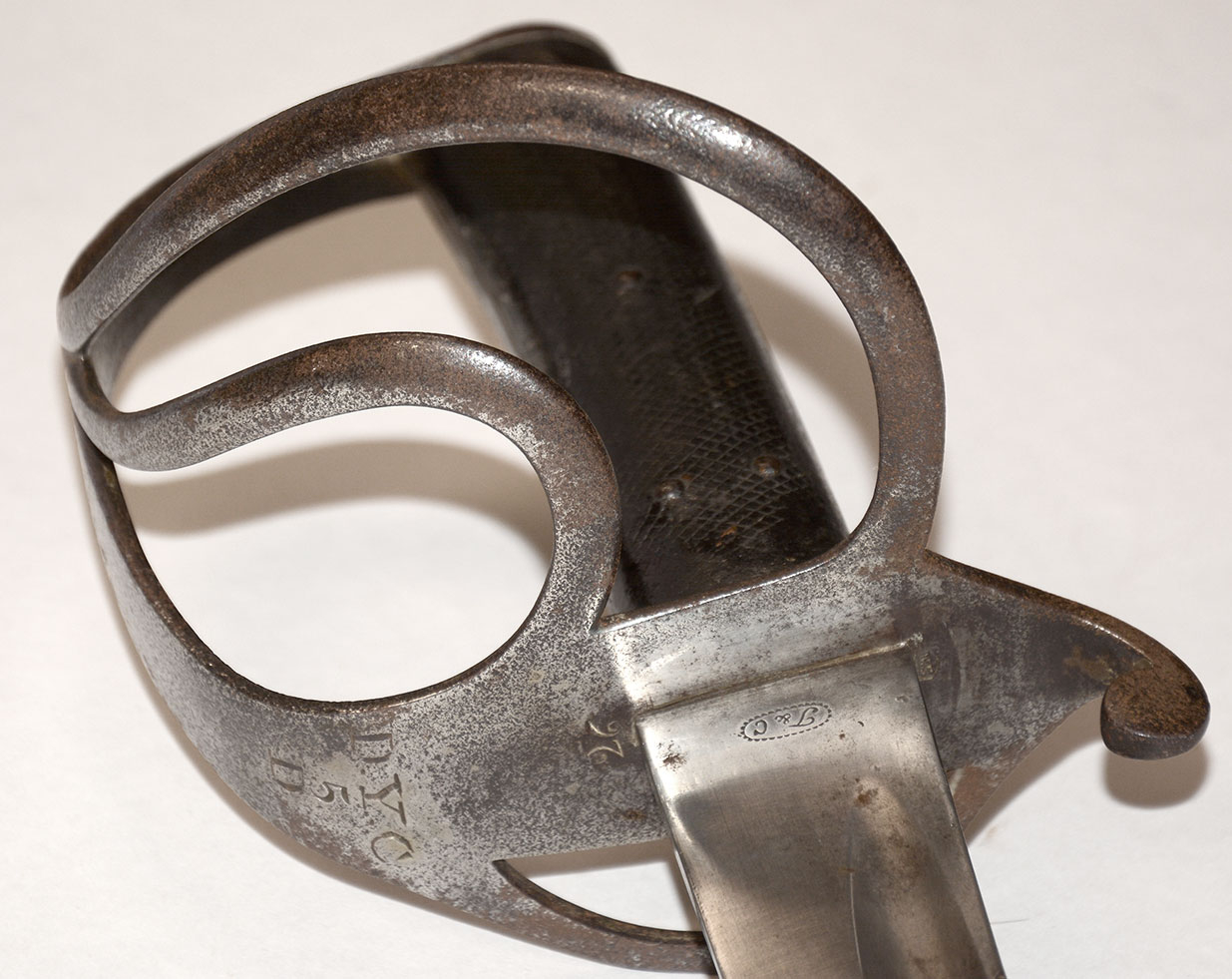
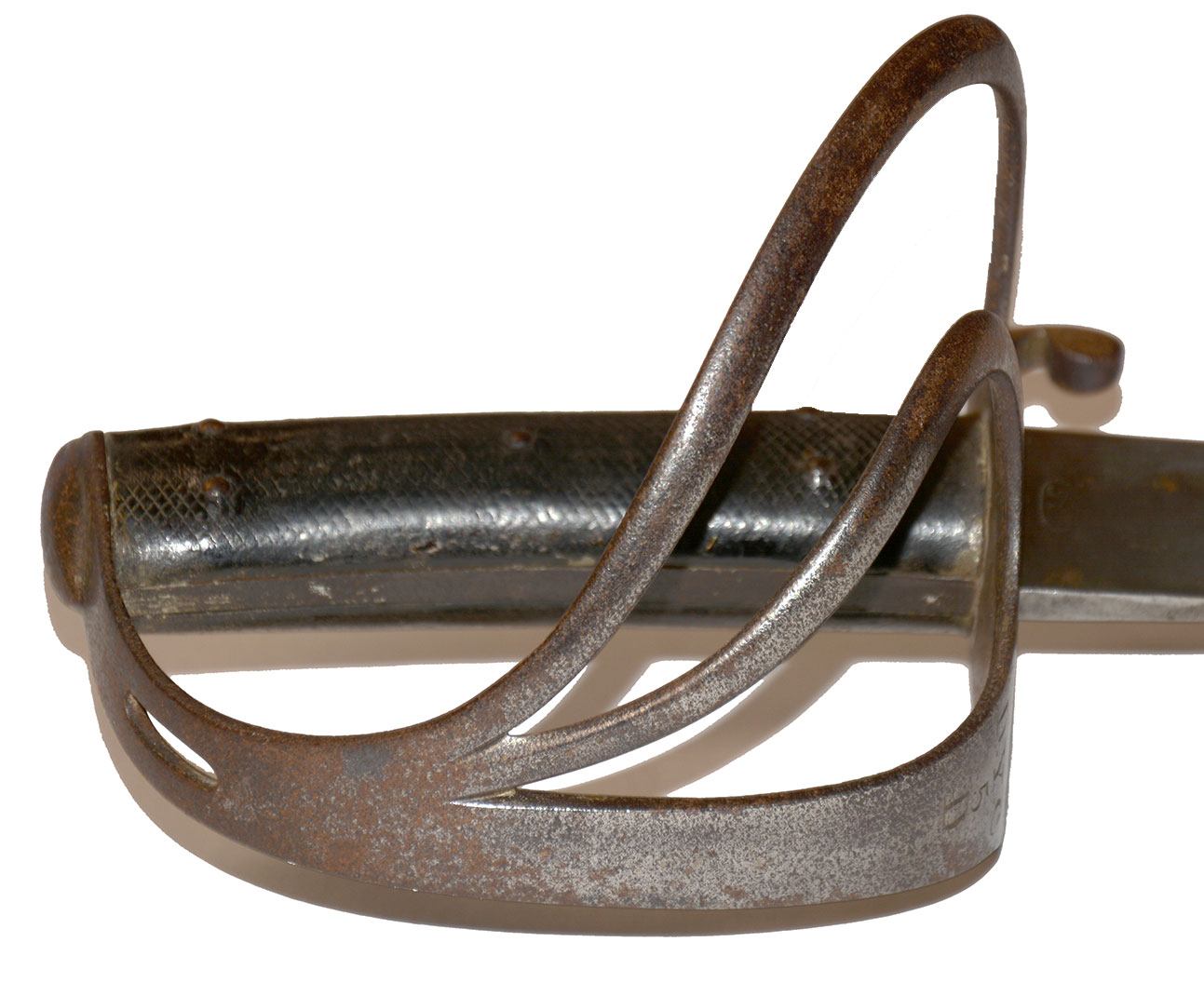
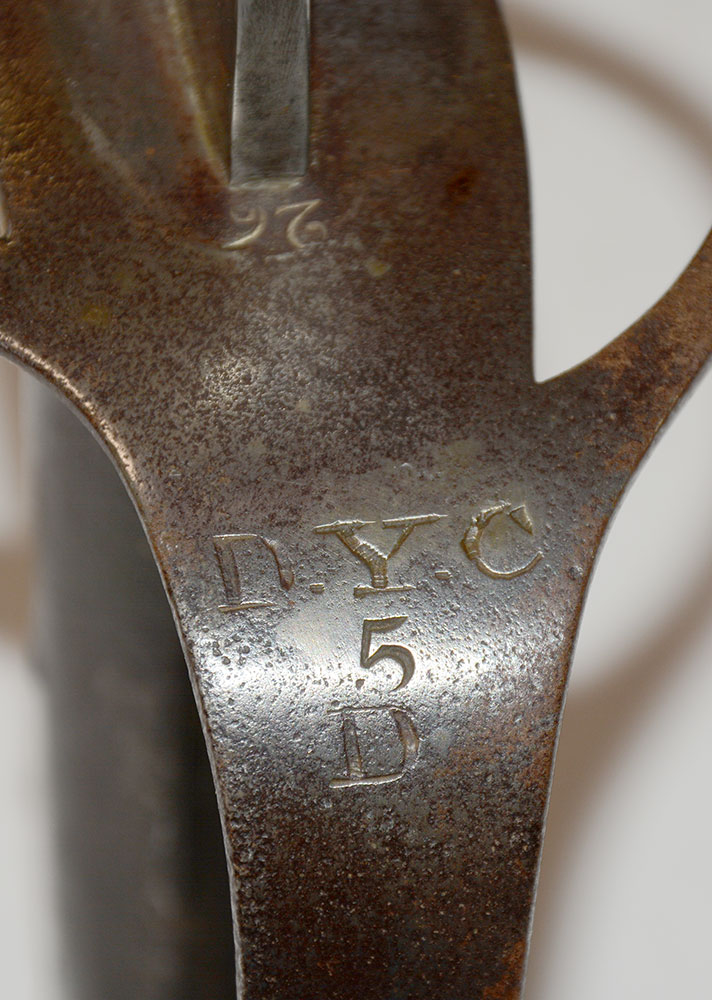
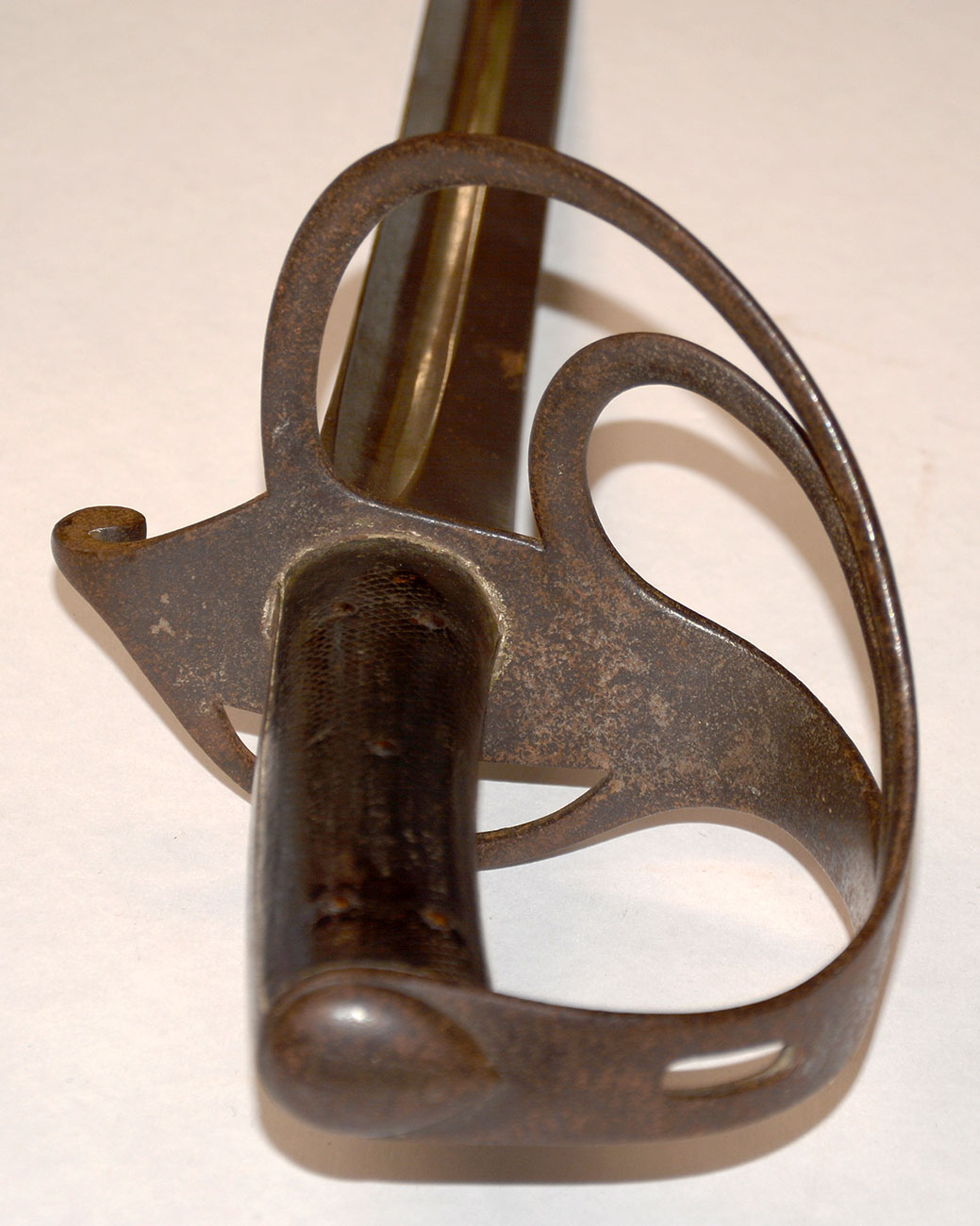
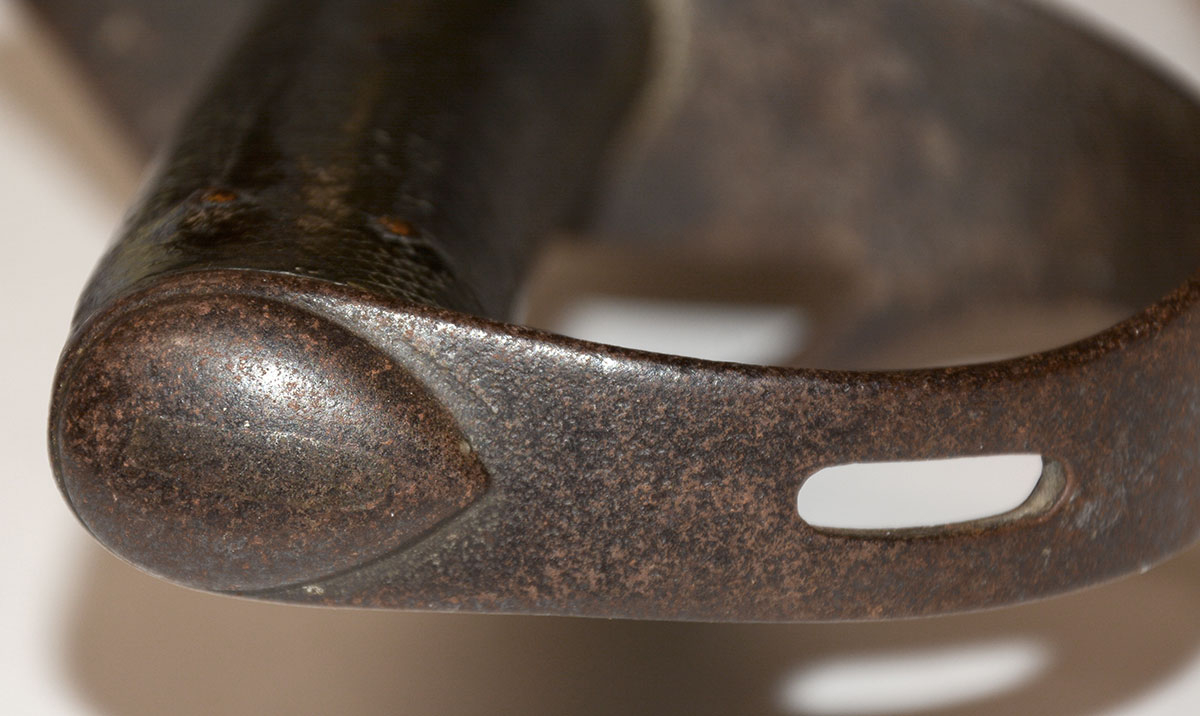
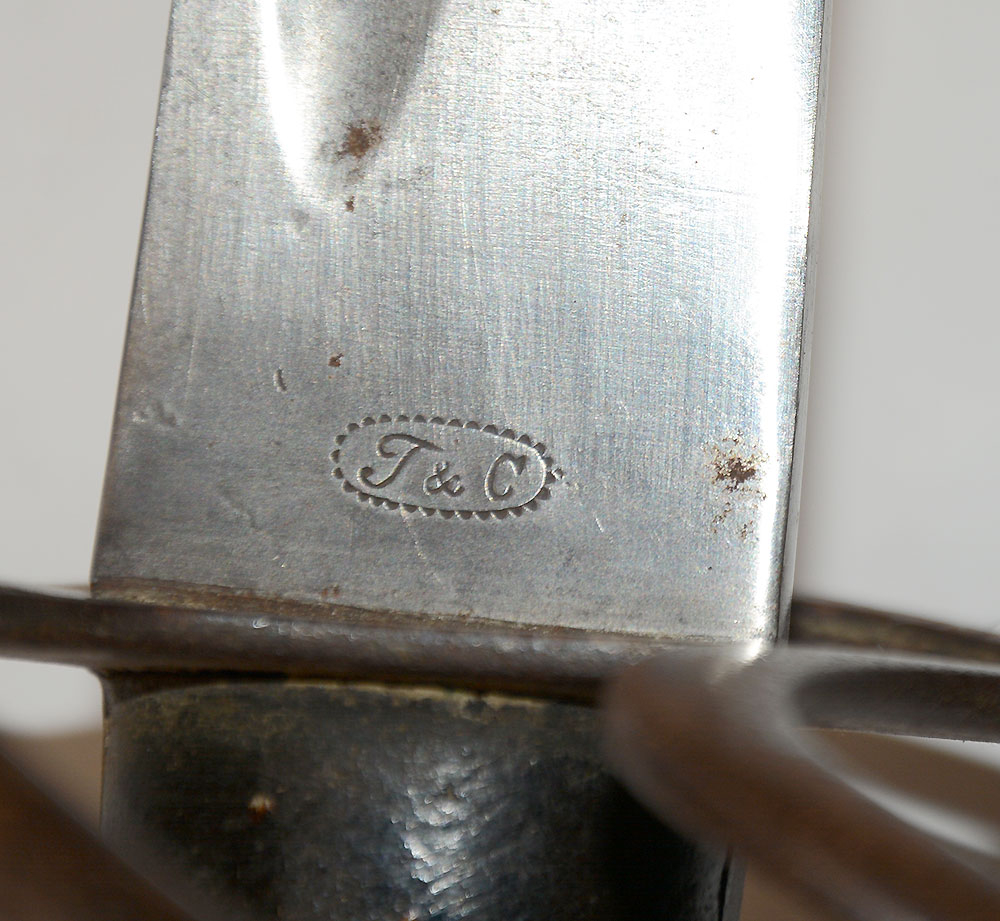
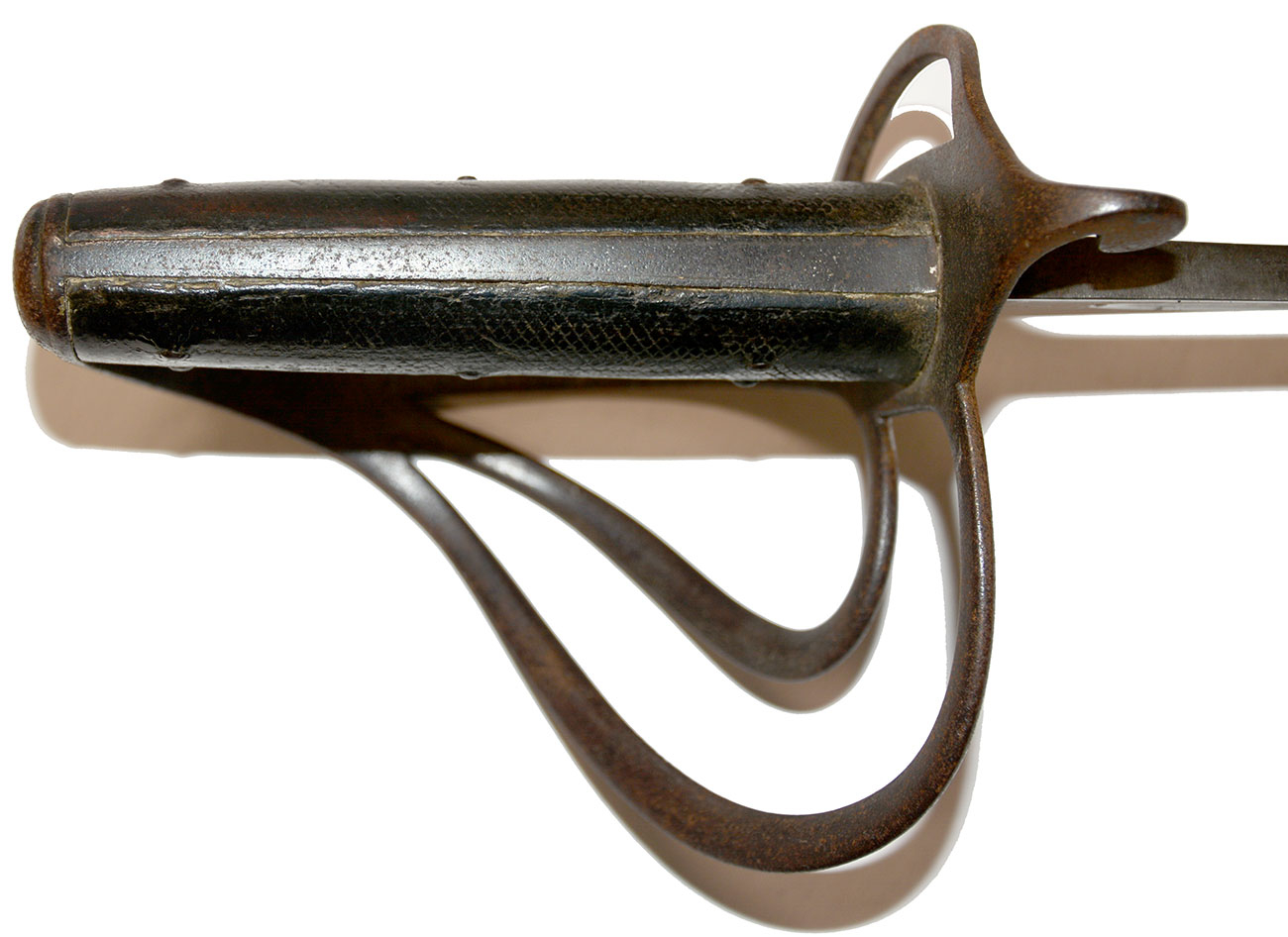
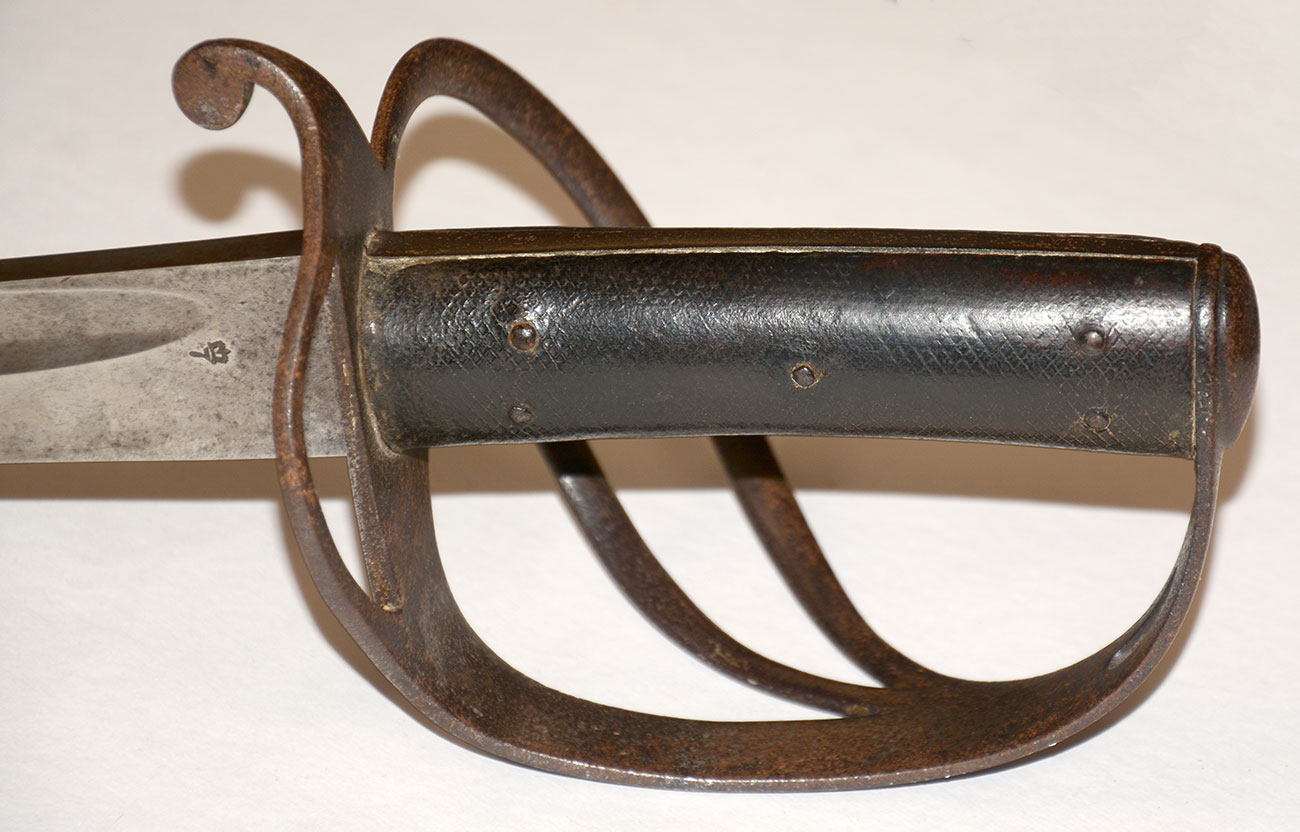
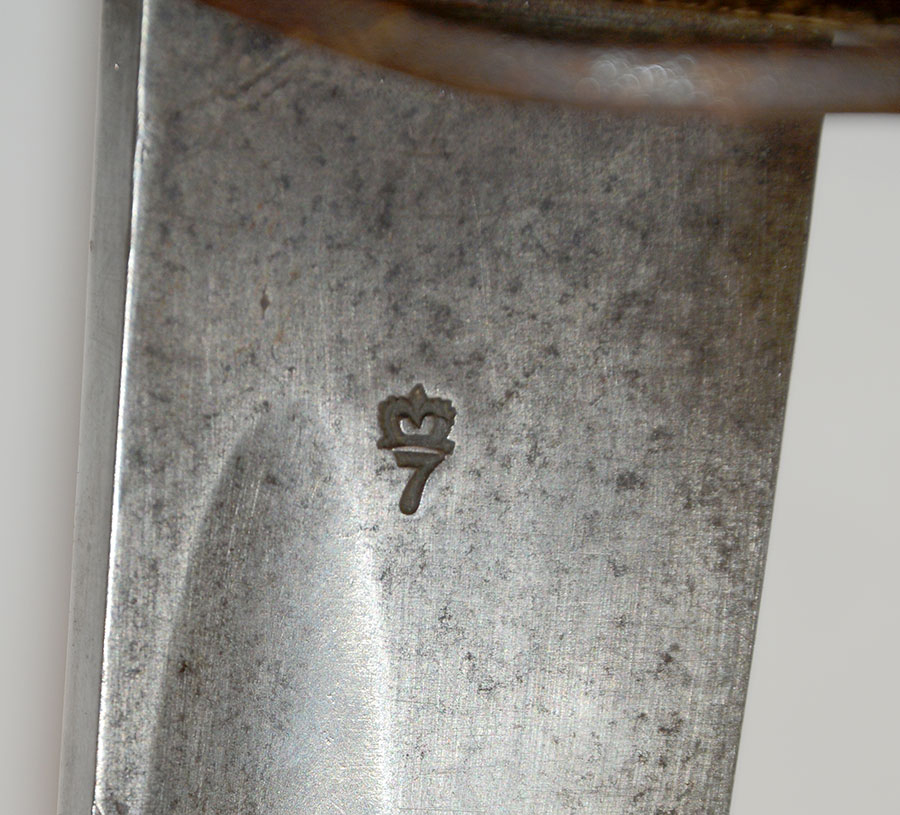

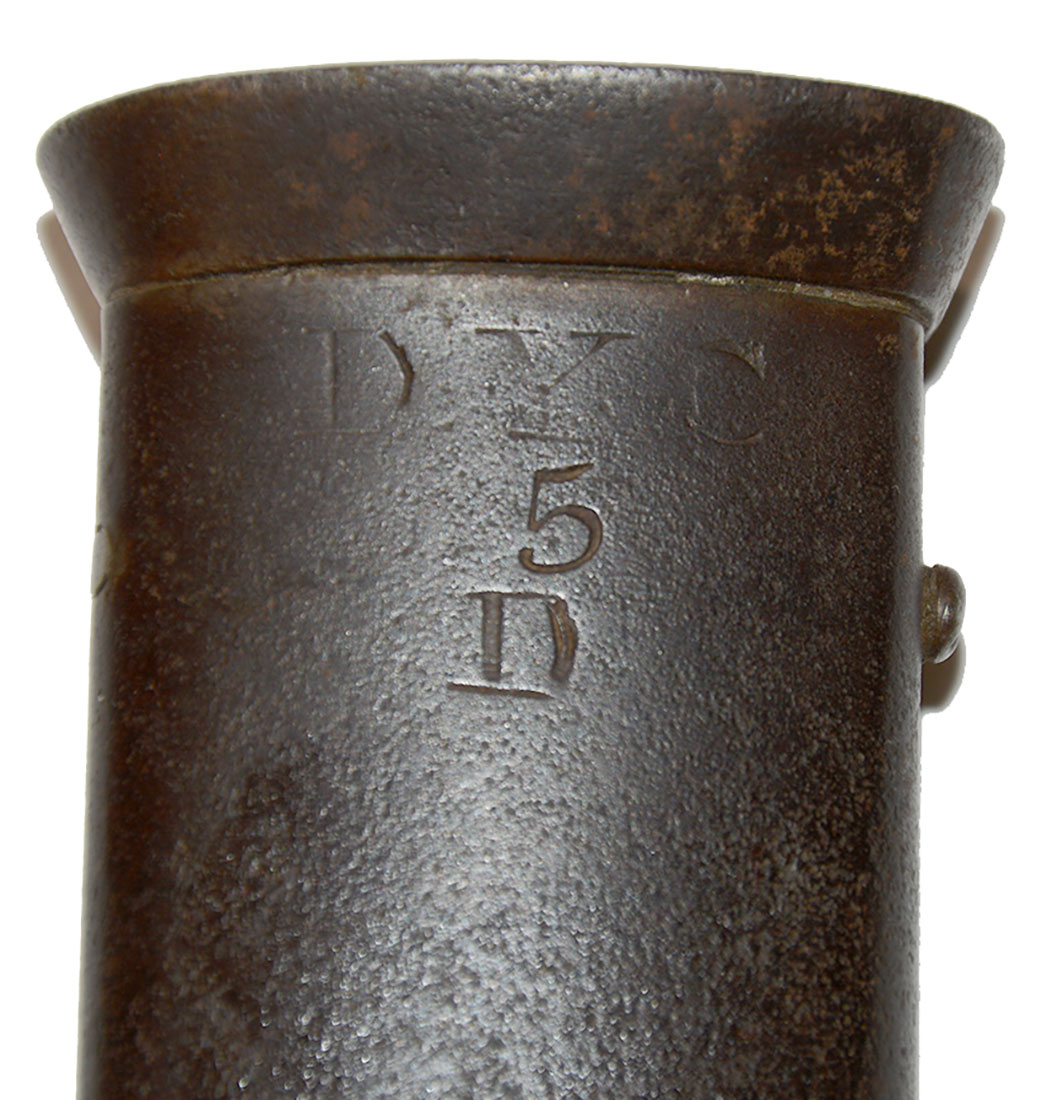
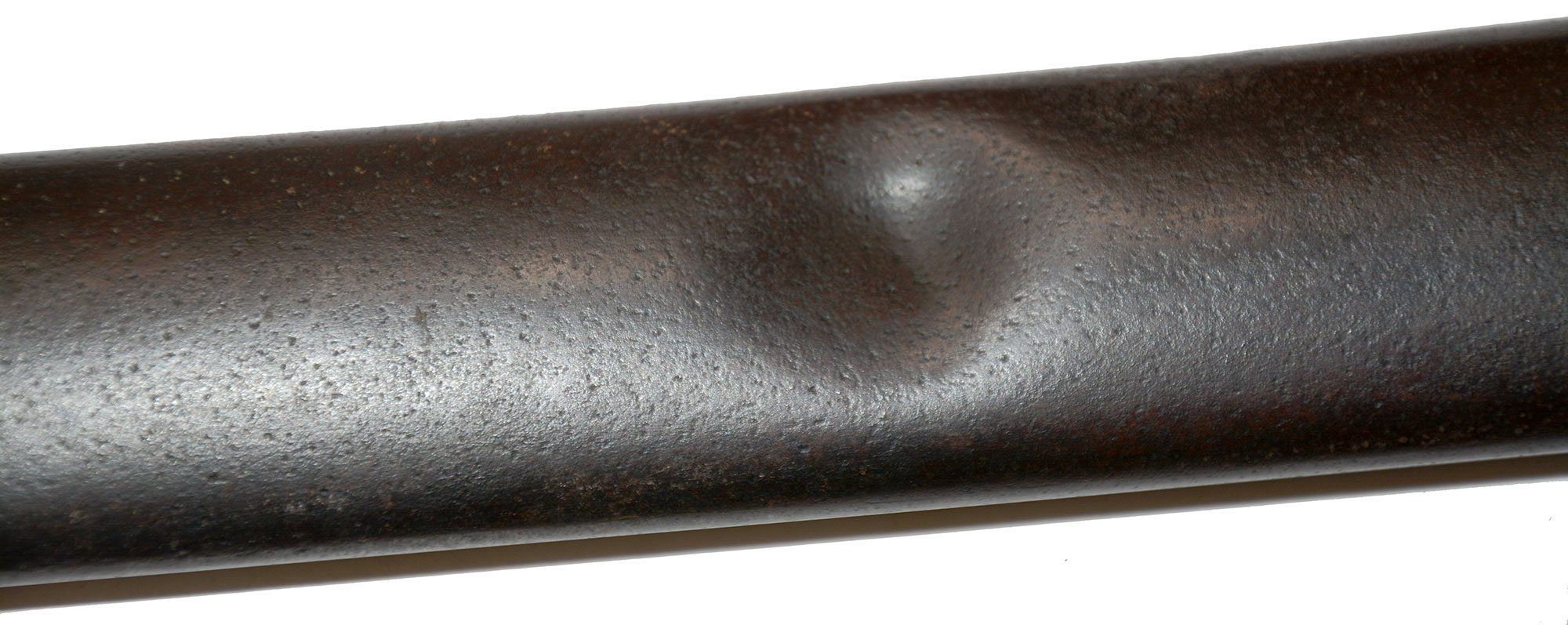
$550.00 SOLD
Quantity Available: None
Item Code: 2025-688
The 1853 Pattern British Cavalry Sword was introduced just before the Crimean War of 1854 and some, but few, saw service at the Battle of Balaclava during "The Charge of the Light Brigade" where the Russian gunner’s fell to the thrusts of the British cavalrymen. By near war's end in 1856 they were in general/universal issue. This sword was also the first to be issued to both Light and Heavy Cavalry regiments. The 1853 pattern survived until 1864 when a new guard was introduced.
The flat iron-mounted knuckle bow is joined by the two branches at the oval counterguard that terminates in a quillon ending in a flat-sided disc. Entire hilt has a darkish brown /gray colored patina. It has black grips of checkered leather riveted to the tang of the blade with five small rivets. Leather is good but shows some shrinkage along the edges and smooth wear to the checkering. The hilt is tight and shows light wear from age and use. Iron pommel exhibits a domed cap. The saber's measure a total length of 42 1/2 inches. The bright 35 1/2-inch blade is just slightly curved, has a 24½” long wide unstopped fuller, and is void of any etching. Blade retains about 80% of its original polished brightness with slight patches of minor light discoloration near the point. The blade is stamped with a small crown over "7". It has a maker's mark on the ricasso of "T & C". The original iron scabbard is in very good condition and exhibits a mottled brown/gray colored patina overall. The unadorned scabbard, which is strong and tight, has dark oxidation areas on a smooth hard surface with light pitting evident. Scabbard has two ring mounts that are tight, and each secures a 1 1/4-inch diameter iron ring. Throat collar retains 1 small set screw the other is filed flush. The scabbard shows 1 dent but is nice.
This sword has matching regimental marks on both the hilt and scabbard. These marks are "DYC" over "5" over "D". Which translates to Dorsetshire Yeomanry Cavalry. 5th Troop. Company D. The Dorsetshire Regiment of Volunteer Yeomanry Cavalry was originally founded in 1794 as the Dorsetshire Regiment of Volunteer Yeomanry Cavalry in response to the growing threat of invasion during the French Revolutionary Wars. By 1838, the regiment consisted of five troops raised from the western portion of the county. Until the Boer War they served within Britain. This is a nice untouched example of a classic British cavalry saber. [pe][ph:L]
~~~~~~~~~~~~~~~~~~~~~~~~~~~~~~~~~~~
THIS ITEM, AS WITH ALL OTHER ITEMS AVAILABLE ON OUR WEB SITE,
MAY BE PURCHASED THROUGH OUR LAYAWAY PROGRAM.
CLICK HERE FOR OUR POLICIES AND TERMS.
THANK YOU!
Inquire About AN ENGLISH REGULATION PATTERN 1853 CAVALRY SABER
Most Popular
Historical Firearms Stolen From The National Civil War Museum In Harrisburg, Pa »
Theft From Gravesite Of Gen. John Reynolds »
Selection Of Unframed Prints By Don Troiani »
Fine Condition Brass Infantry Bugle Insignia »
British Imported, Confederate Used Bayonet »
Scarce New Model 1865 Sharps Still In Percussion Near Factory New »
featured item
ALS, MAJOR GENERAL JAMES LONGSTREET, CSA, Addressed To MAJOR GEN. DANIEL HARVEY HILL
Dated “Hd Qrs June 16th 1862.” One page in ink, 5” x 8. Exhibits fold-marks. Else VG and entirely legible. This letter from one major general divisional commander to was written between between the Battle of Fair Oaks at the end of May 1862 and… (1179-1398). Learn More »


